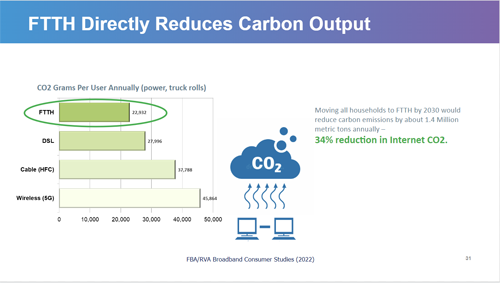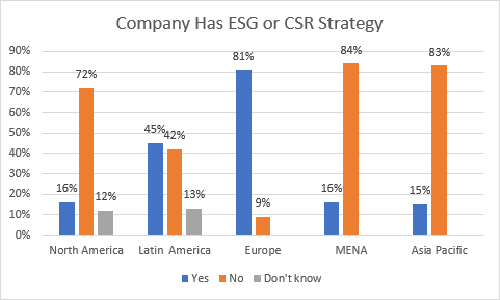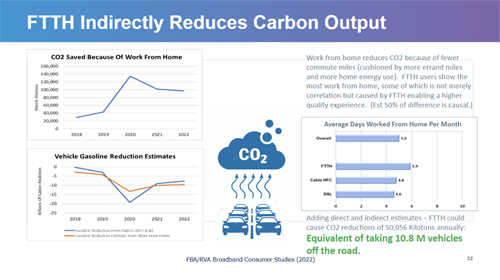A Boston Consulting Group report states that the Information and Communications Technology (ICT) sector is responsible for 3% to 4% of all global emissions—twice the levels of the aviation industry. However, because fibre-based broadband consumes less energy than other broadband technologies, it can help the industry significantly reduce emissions. Several Sustainability Survey respondents listed converting from Hybrid Fibre Coax (HFC) to FTTH was cited as a way to improve sustainability programs. Furthermore, research by RVA, LLC and the Fiber Broadband Association reveals that FTTH directly reduces carbon output. The study, conducted late 2022, calculated that transferring all broadband households to fibre lines by 2030 would slash CO2 emissions by some 1.4 million metric tons annually: a 34% reduction in internet service-related carbon output for the industry.
FTTH Council Global Alliance Sustainability Survey
Study shows majority of companies in the sector are working towards 40% reduction GHG emissions by 2030, targeting net zero by 2040.










